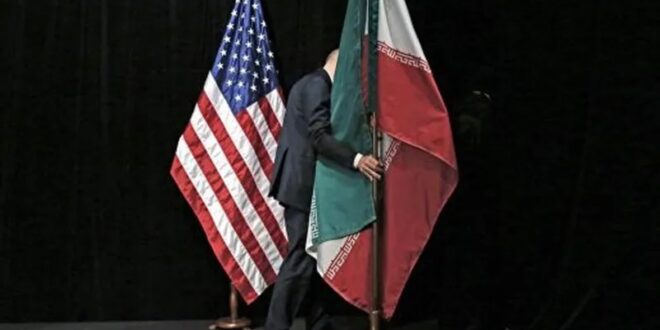To borrow from that wiliest of ex-bishops turned statesmen, Charles de Talleyrand, George W. Bush’s decision to invade Iraq was worse than a crime: it was a mistake. Twenty years after 9/11, American military and foreign policy leaders are still struggling to resurrect something of the functionally stable balance of power in the region that preceded their 2003 ouster of Saddam’s Baathist regime. While all signs point to the U.S. increasingly losing interest, its increasing desire to focus on southeast Asia is likely to be disrupted by the nagging issue of Iran’s nuclear program.
Since Trump’s 2018 abrogation of the arduously negotiated Joint Comprehensive Plan of Action destroyed any goodwill his predecessor had generated by signing the deal, Iran has proceeded with its enrichment and regional influence operations.
As things stand, even a return to the original agreement – something many are calling for – doesn’t seem possible. Having successfully weathered the worst Trump could throw at it short of direct armed intervention, Tehran refuses to come back to the deal without U.S. concessions. On the one hand, this is reasonable as it was Trump who pulled out of the deal. Likewise, with the threat of a possible 2024 Trump presidential bid, Tehran is understandably nervous any agreement struck with the Biden administration will be likewise terminated were Trump to retake the office. For his part, Biden doesn’t dare yield ground. Geostrategic advantages aside, Trump successfully campaigned against the Iran deal negotiated by the Obama administration and Biden can ill afford undertaking such a politically risking initiative as concessions to Tehran in the present environment.
That being the case, returning to the deal is the only realistic, peaceful solution to the present situation, and leaders in both countries should commit the political capital necessary to getting it done. Biden should take the deal to cool tensions, as the present course is likely to see the U.S. further sucked back into the Middle East. It also isn’t clear he would suffer domestically for doing so if the alternative presented is that of yet another Middle Eastern conflict to a war-wearied American public. As far as Tehran is concerned, it should eschew its own maximalist position. Trump’s only hurt the U.S. position, and Iran’s is likely to do the same. While its frustration is understandable, returning to the deal provides Tehran nothing but benefits and changes nothing about the material facts.
After all, we’re talking about information and technology that has been available since the 1940s. If it doesn’t already have them, Iran is probably capable of building nuclear weapons within months and likely has been for years. Domestically, hardliners should be made to see that Iran’s greatest present need is economic, not geopolitical. Repeated bouts of sanctions and its exertions in Syria and elsewhere have left the country drained. In fact, Iran’s experience has been so hard on its domestic population that the tenuously perched Sunni Gulf Monarchies may have been convinced by the ordeal that pursuing a weapons program of their own is not worth the risk.
This last part will be key. The anti-Israel rhetoric of right-wing populists such as Ahmadinejad aside, the most likely reason Iran wants a nuclear deterrent is because it knows what happens to regimes who oppose Washington without one – or who give them up, like Gaddafi. Just as the region has gotten used to pretending Israel doesn’t have nuclear weapons, the U.S. should focus its efforts on acclimating Gulf allies to the reality of the situation. An arms race would only make everything worse. The finances of Iran are terrible, Syria is destroyed, Erdogan is driving Turkey’s economy into the ground, and Saudi Arabia and the other Gulf States have been trying increasingly to devote the oil money coming in towards building high-tech economies in preparation for the post-fossil fuel era. In short, no one can afford it. As for Israel, it has plenty of domestic issues to sort out.
The Thirty Years War, to which this present series of interconnected conflicts in the Middle East is sometimes compared, was only brought to an end by recognition of the territorial sovereignty of states. Once the primary sticking point to any stable Middle Eastern order, Israel is well on its way to recognition. Today, the Gulf Monarchies and Israel bristle at the mention of Iranian nuclear weapons, decrying the potential of regional Iranian hegemony. But this could not be so: the balance of forces that would array against it would be too large, with Israel, Turkey, and Saudi Arabia leading an eager following. All have networks and spheres of influence – some of which overlap. And the key to stabilizing relations in the region among the powers is working to resolve those areas of overlap without allowing the disagreements to break down to the point of open conflict – or allowing existing conflicts to spread into wider regional conflagrations.
Whatever the solution, much like the Thirty Years War, it may be easiest for the regional powers to establish a balance they are all comfortable with without the looming prospect, or fear, of military intervention by an outside balancer – be it the U.S., Russia, or maybe even China. Indeed, formal and informal regional meetings have been taking place since the U.S. withdrawal from Afghanistan. Returning to the deal would be a signal to the Iranians and regional allies that Washington both takes Iran’s interests seriously and is doing what it can in a constrained political environment to play its part in facilitating the dialogues and compromises necessary to forge a durable balance of power in the region.
 Eurasia Press & News
Eurasia Press & News




